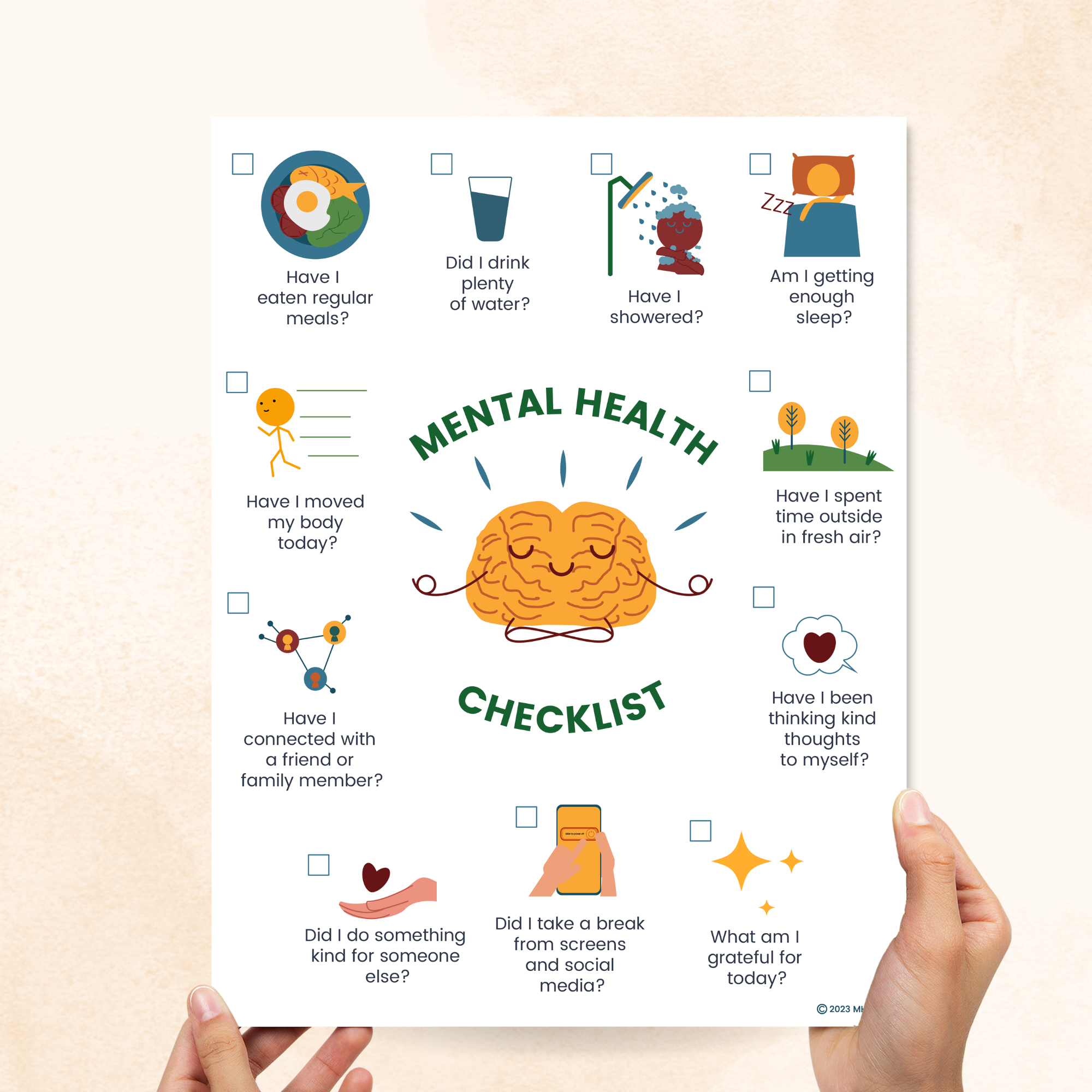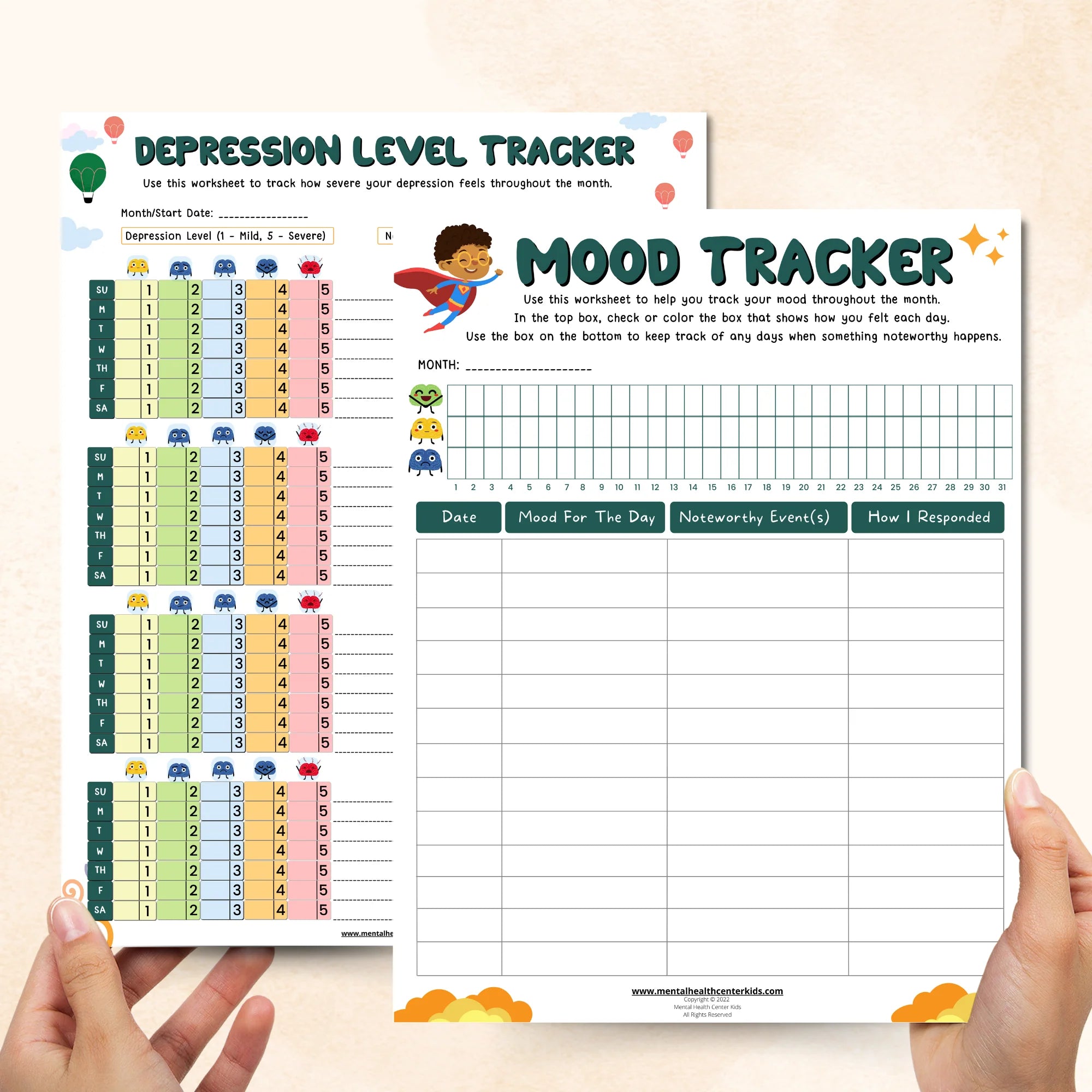|
Key Takeaways:
- Regular, guided reflection builds kids’ emotional awareness and helps them name feelings before they act.
- Self-awareness worksheets help children understand the link between their thoughts, emotions, and behaviors.
- Using these tools regularly at home or in therapy encourages emotional regulation and healthier communication skills.
|
When children understand their own emotions, recognize their strengths, and learn to identify their needs, they’re better equipped to overcome life’s challenges. The self-awareness worksheets below are tools recommended for parents who want to support their child’s emotional growth at home.
What is Self-Awareness?
Self-awareness is your child's ability to recognize and understand their own emotions, thoughts, strengths, and behaviors. In practical terms, it means your child can tell you "I'm feeling frustrated because my homework is hard" rather than simply acting out, or recognize "I'm really good at helping my friends feel better" as one of their strengths.
Understanding the type of self-awareness also matters. Research examined the different forms of self-awareness [*].
Self-reflection (noticing and evaluating your thoughts and actions) and insight (understanding why you think and behave a certain way) are beneficial. Rumination (dwelling on negative thoughts and feelings), however, increases emotional costs like guilt and fear [*].
This is a critical distinction for parents: we want to encourage our children to reflect on their experiences and gain insight, not get stuck ruminating.
Moreover, research shows that people with higher self-awareness experience significantly fewer difficulties with emotional regulation. They were better able to accept their emotional responses, stay focused on their goals even when upset, and control their impulses [*].
10 Printable Self-Awareness Worksheets for Kids
The worksheets below are designed to help kids explore their feelings, behaviors, and strengths. You can use them during quiet time, therapy sessions, or family discussions.
1. Self-Esteem Review Worksheet

This worksheet prompts the user to rate their current self‐esteem level and consider areas for growth. By asking the young person to rate their self-esteem and look back at wins and challenges, it encourages them to pause and think, not just react. That kind of reflection is a key part of self-awareness.
The child can track when their self-esteem is stronger or weaker. That can help them (and you) notice triggers, themes, or situations that affect self-esteem. For example, if they realize they feel worse after conflict with friends or after criticism, they become more aware of what influences their mood and self-view.
2. Mental Health Checklist

Think of this checklist as a regular check-up tool for your child's emotional well-being. Because it’s designed for daily use or as a visible reminder, it helps children (and you) turn “How am I doing?” into a regular habit. This builds self-awareness by making it part of the routine rather than only when things go wrong.
This worksheet opens up conversations about mental health in a normalized, structured way and helps you catch any concerns early.
3. Feelings Check-In Worksheet

Many young people don’t routinely reflect on their feelings until a problem arises, and this worksheet is built to change that by fitting into daily routines.
The worksheet asks the child/teen to check in on how they feel right now, and where in the body they feel it. That ties directly into self-awareness: noticing internal states rather than waiting for an external crisis.
4. Signs of Anger Worksheet

The worksheet helps kids and teens recognize the physical, emotional, and behavioral signs of anger. It uses a metaphor of a “road with signs on the sides” to illustrate how anger builds and how early warning signs appear. It asks the young person to check off the signs they notice in themselves.
Many children don’t realize how their body signals anger until it escalates. This worksheet bridges that gap by inviting them to notice bodily and behavioral indicators early.
5. Anxiety Symptoms in Teens Checklist

This checklist enumerates common anxious thoughts and feelings, so teens can identify those they experience. This shifts focus from "Something feels wrong" to "What exactly am I feeling or thinking right now?" That kind of noticing builds awareness of internal states.
At the bottom, they are asked to write three symptoms that have had the biggest impact on their life. By doing so, the teen reflects not just on what anxiety looks like, but how it affects their life.
6. DBT HALT Skill Worksheet

The worksheet introduces the acronym H A L T (Hungry, Angry, Lonely, Tired). These are early warning signs of distress and vulnerability. It features two activities: a checklist or questionnaire to assess current physical/emotional states, and a reflection sheet to explore coping strategies and rate intensity.
When children/teens monitor if they are hungry, angry, lonely, or tired, they become aware of states that often precede emotional or behavioral problems. This bridges awareness of “I feel off” with “Here’s what might be causing it.” Over repeated use, that pattern builds self‐knowledge: “I always feel worse when I haven’t eaten, and then I snap at my sibling.”
7. Monthly Feelings Tracker

The tracker features a circular design with grids, where the user can mark each day’s feeling. Because the tracking covers a full month, the child can later look back and ask: “Which days did I feel most worried or stressed? What was happening then?” That awareness is a foundation for change.
With awareness of their own emotional flow, kids may begin to anticipate difficult days and apply coping strategies. For example: “I see I often feel stressed on Thursdays, I’ll plan a break or calming activity that day.”
8. Mood Tracker Worksheet

The Mood Tracker Worksheet helps kids and teens record how they feel each day, and provides a space where they can write when something noteworthy happens. The worksheet also includes a version for tracking depression levels.
The worksheet asks for thoughts, behaviors, or events connected to that day’s mood. This helps the user see connections: “When I felt ___, I thought ___, I did ___.” That linkage is foundational for awareness of how mood emerges and how it’s influenced.
9. My Strengths Worksheet

The worksheet provides kids with a list of strengths, and they can mark those that they possess. There’s also a section for them to write strengths they want to develop and to list steps they can take toward those.
Many young people default to thinking about what they can’t do or where they feel weak. This worksheet invites them to recognize what they can do. That builds self‐awareness of positive qualities.
10. My Positive Qualities Worksheet

My Positive Qualities worksheet includes a long list of traits to encourage kids to recognize what they have and what they would like to have.
By selecting qualities that resonate with them, children can actively reflect on their character. Focusing on positive qualities shifts the mindset from “What’s wrong with me?” to “What’s going right and how can I build on it?” This supports a healthier self-view and identity awareness.
The Bottom Line
Self-awareness is not something that happens overnight. It’s built on consistent practice and reflection. These ten worksheets give you practical, structured ways to guide your child toward greater self-understanding.
Create a safe space where your child feels comfortable being honest about their feelings and experiences. Some worksheets might resonate more with your child than others, and that's perfectly fine. Follow their lead and use the tools that feel most helpful.
Feel free to explore our Feelings Worksheets and Coping Skills Worksheets collections to support increased self-awareness and attunement to social-emotional needs.
References:
- Sutton A. Measuring the Effects of Self-Awareness: Construction of the Self-Awareness Outcomes Questionnaire. Eur J Psychol. 2016 Nov 18;12(4):645-658. doi: 10.5964/ejop.v12i4.1178. PMID: 27872672; PMCID: PMC5114878.
- Abdel Hadi, S. A., & Gharaibeh, M. (2023). The Role of Self-Awareness in Predicting the Level of Emotional Regulation Difficulties among Faculty Members. Emerging Science Journal, 7(4), 1274–1293. https://doi.org/10.28991/ESJ-2023-07-04-017





























































